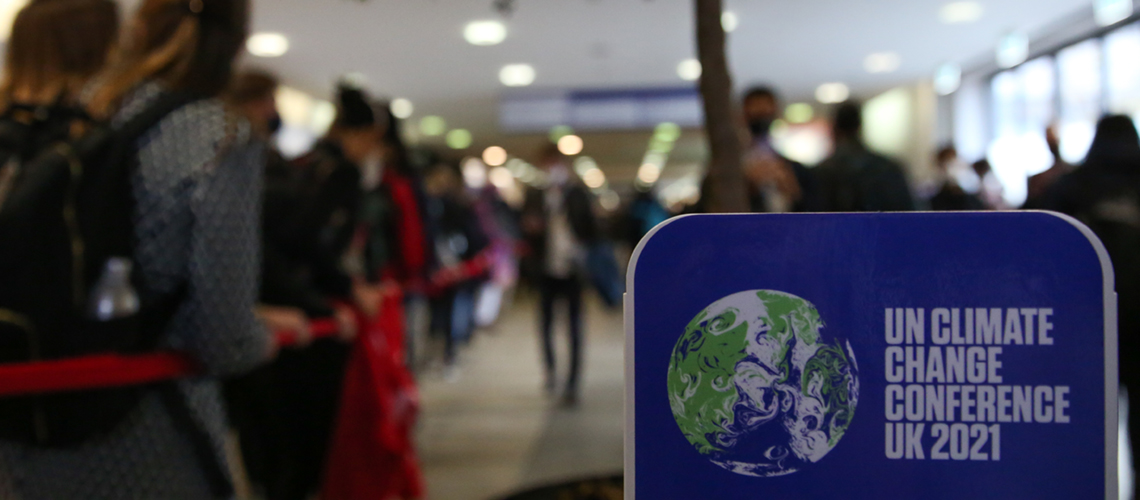
Published
- Sustainability
- Financing
- Trade
COP26: “The financial sector has a key role to play”
Marie Aglert, Head of Business Area Large Corporates at EKN, attended the UN Climate Change Conference COP26 in Glasgow. The important role of the financial sector in the climate transition and the need for a modernisation of the OECD framework were among her takeaways.
Welcome back from COP26, Marie Aglert. What is your biggest impression of the climate meeting in Glasgow?
“It was fantastic to meet representatives from so many countries and different sectors, ranging from government bodies, the business community and the financial sector to development agencies and NGOs. The urgent need for concrete action was felt in the air and everyone wanted to participate and contribute in a constructive way.”
“The transition to a fossil-free society represents a tremendous business opportunity for Swedish companies, given their long history of developing the technology required to meet the rapidly increasing demand for solutions in renewable energy and other areas that help build a more sustainable world.”
Were there any concrete results that directly affect EKN’s agenda?
“I was delighted to see 39 countries join forces in a pledge to phase out export credit support to fossil operation already in 2022. EKN has been a pioneer in this respect and we have actively tried to inspire other countries to follow suit, partly to avoid a situation where Swedish exporters would suffer a competitive disadvantage.”
What issues did EKN raise at COP26?
“The financial sector has a key role to play in the climate transition. Together with export credit agencies from other countries, EKN raised the need for a modernisation of the OECD Framework to strengthen the incentive for the substantial investments required to halt climate change. The framework must benefit export credits for investments that contribute in a concrete and verifiable way to reaching the climate goals.”
“Export financing plays an important part in global trade and ICC estimates that the sum total of export credits amounts to 700 billion USD annually. EKN covers export credits to more than 140 countries and with a statutory limit of 50 billion Euro we have the means to cover an even bigger part of the investments needed for the climate transition.
“Investments in green energy and green transportation are rarely profitable in a short-term perspective and in addition they require advanced technology of a kind that developing countries are not always able to finance on their own. Financing via export credits where an ECA covers the risk lowers the investment threshold for sustainable investments and helps attract private capital.”
What changes would EKN and other ECAs like to see in the OECD Framework?
“We want to be able to cover export credits with tenors of up to 25 years, reduced requirements for down-payment and the opportunity to incentivize green investment to a larger degree. Longer tenors are already permitted for investments in renewable energy, and we feel this exception should be extended to other industries that also contribute to the climate transition.”
Going forward, what’s most important?
“We need to see greater collaboration across different sectors, from development finance institutions to NGOs and companies that supply the technology and solutions needed for the climate transition. The substantial need for funding requires creative, structured solutions where private capital joins aid, development funds and export credits. A pooling of resources in terms of capital, technology and sustainability expertise is necessary if we are to reach the climate goals.”
